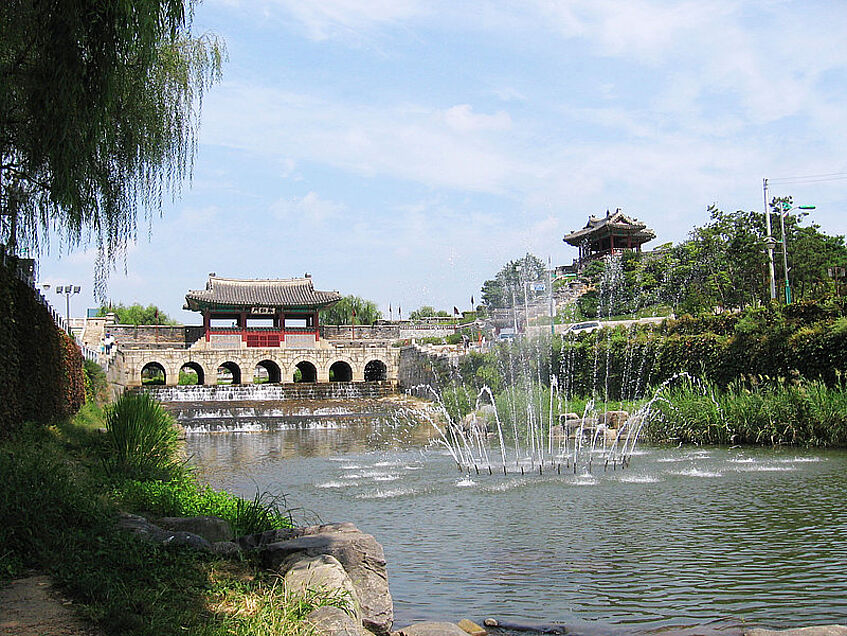Korean Studies (Bachelor)

© Rainer Dormels
The bachelor's programme in Korean Studies provides fundamental knowledge of the modern Korean language, as well as basic knowledge of the history, source studies, regional studies and culture, politics, economy and society of Korea. In addition, it aims to introduce students to central questions, theories and methods of modern research on Korea. Students acquire the following qualifications: basic active and passive skills in the Korean language, enabling them to engage in everyday communication, specialised discussions and an academic examination of Korean sources; a basic understanding of the processes taking place in modern Korea, in consideration of the country’s historical development; and the ability to reflect on the social development in Korea in a differentiated manner.
Bachelor of Arts
Degree Programme Code: 033 671
6 semesters / 180 ECTS credits (including 60 ECTS credits of extension curricula)
Language: German
Facts & Figures
- Students: n.a.
- Graduates in the last academic year: n.a.
- Number of semesters needed for graduation (median): n.a.
Data updated on: 20.07.2023
Attention
Instruction Language German
Please note that the instruction language of this programme is German. To start the degree programme, you need to hold a certificate of German proficiency on C1 level.
Admission Procedure
Study programme
The bachelor's programme in Korean Studies consists of an Introductory and Orientation Period (STEOP) and compulsory modules on the following subject areas: language competence; basics of Korean studies; history, source studies, regional studies and culture of Korea, politics, economy and society of Korea. To successfully complete the bachelor’s programme, students have to write two bachelor's theses.
A study visit to Korea for one or two semesters is recommended and is usually supported by the Department as far as possible.
Five concepts
which you will deal with during your studies:
- Korean language
- Regional studies
- Society of Korea
- Korean history and politics
- Korean popular culture
... and many more.
Overview of the programme structure & topics
Here you find the current offer of courses for this programme to gain better insight into the topics and structure. For more information please click on the respective level.
After Graduation
Graduates can pursue a career in the following fields:
- economic sector and trade
- media, journalism and publishing
- national and international organisations
- educational institutions
- archival work, librarianship/libraries
- tourism
- academia
Graduates' Perspective on the Degree Programme
Graduates ...
- say that this degree programme receives the grade: 2.4 (good)
- rate the level of difficulty as: 3.0 (appropriate)
→ These results are basd on feedback from 29 graduates.
*You can find further assessments of the degree programme from its graduates’ perspective in the graduate survey of the bachelor’s programme in Koreanology graduation survey (in German).

